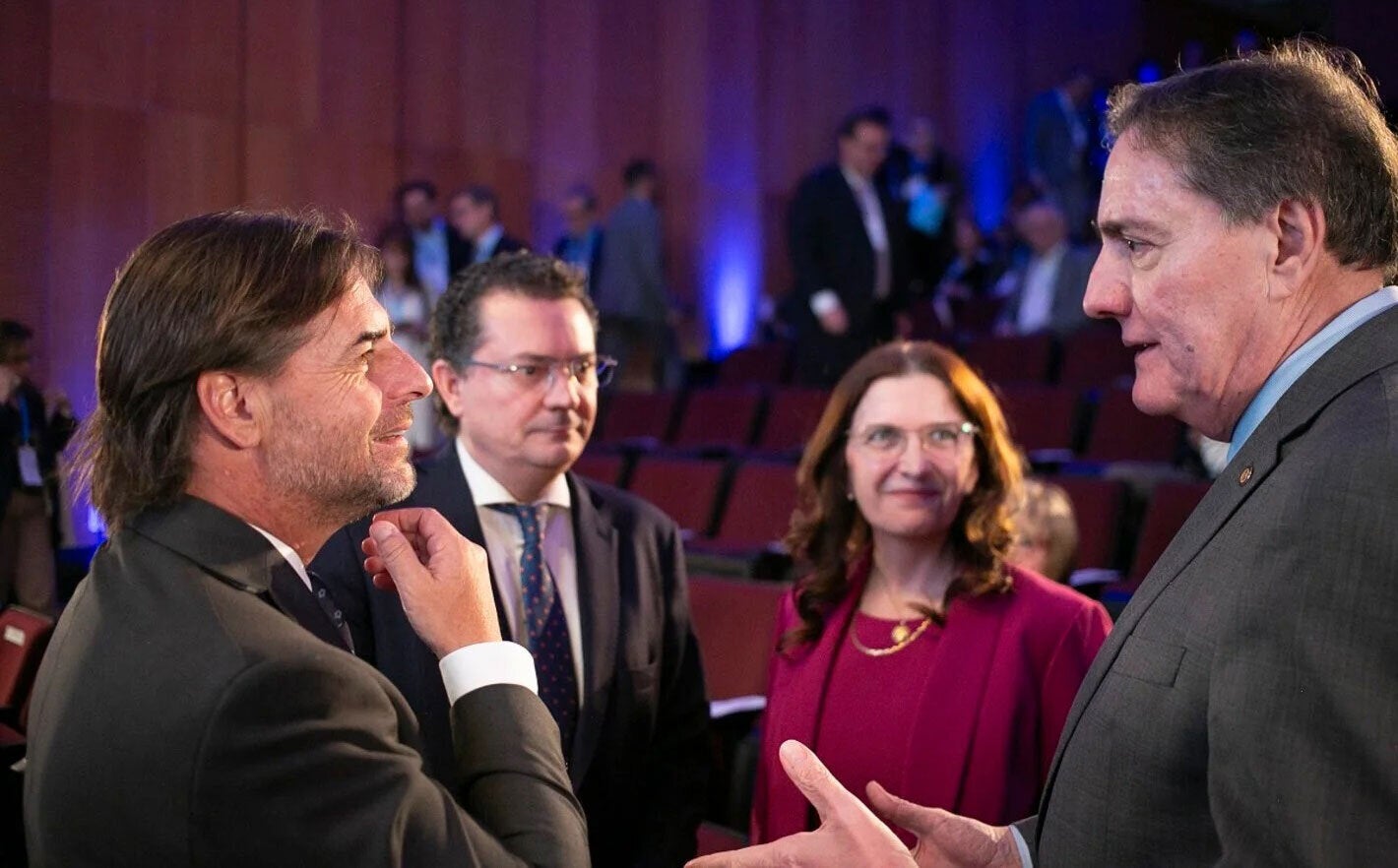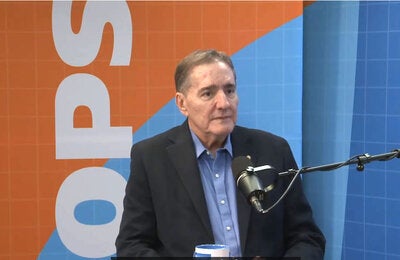
Montevideo, 6 December 2023 (PAHO) - The Director of the Pan American Health Organization (PAHO), Dr. Jarbas Barbosa, visited Uruguay this week where he met with senior government officials, legislators and deans of medical schools. The PAHO Director also visited hospitals and health centers and attended the Regional Forum: Alliance for Primary Health Care in the Americas.
During the opening of the Forum, Dr. Barbosa launched the Partnership for Primary Health Care (PHC) in the Americas, which he described as a "historic moment" and a "first step for the region to become a world leader in PHC". The partnership is a collaboration between PAHO, the Inter-American Development Bank (IDB), the World Bank and countries of the region to expand and strengthen primary health care.
Dr. Barbosa thanked the President of Uruguay, Luis Lacalle Pou, who participated in the opening of the Forum on Monday and highlighted the country's National Integrated Health System (SNIS), which "provides coverage to 100% of the population through a public expenditure on health of over 6% of the gross domestic product - higher than the regional average.”
In his first official visit to the country since the beginning his tenure as PAHO Director in February this year, Dr. Barbosa met with Vice President Beatriz Argimón, Foreign Minister Omar Paganini, the Deputy Secretary of the Presidency and representative of the Uruguayan Agency for International Cooperation (AUCI), Rodrigo Ferrés, the Minister of Public Health, Karina Rando, Undersecretary José Luis Satdjian and technical teams from the Ministry of Health, alongside PAHO/WHO representative in Uruguay, Hernán Montenegro.
During the meeting with the Vice President, Dr. Barbosa underscored that the country "has a model primary health care system in the region, from which other countries can learn.” With the Uruguayan Chancellor, the PAHO Director emphasized "the country's potential for south-south cooperation on various health issues, including primary health care,” as well as in the regional production of medical supplies and vaccines.
Dr. Barbosa toured the Legislative Palace and met with deputies Cristina Lustemberg and Milton Corbo, members of the Public Health and Social Assistance Committee of the House of Representatives. During the meeting, they discussed the role of legislators in formulating laws that promote and protect health.
The PAHO Director also held meetings with the Dean of the Faculty of Medicine at the Universidad de la República, Arturo Briva, and with Daniel Salinas, Dean of the Faculty for Health Sciences at the Universidad Católica del Uruguay and former Minister of Health.
Dr. Barbosa also visited the Hospital de Clínicas, a university health center and national reference in human resources training. During this visit, he met with officials from the Toxicological Information and Counseling Center (CIAT), which is a PAHO/WHO Collaborating Center. He visited the Giordano Health Center of the State Health Services Administration (ASSE), a primary health care center.
The PAHO Director also met with UN representatives in Uruguay to underscore the importance of collaboration.
During a side-event during the Regional Forum, Dr. Barbosa participated in a briefing organized by PAHO, the IDB and the U.S. Department of State to inform delegates from the region about the Health and Economic Dialogue of the Americas (EHA) initiative. EHA seeks to promote political commitment to strengthen public health and protect economies to better prepare for the next pandemic.
During the closing of the Regional Forum, after three days of exchange and reflection among representatives from more than 30 countries of the region, the PAHO Director concluded that " without strong, renewed primary health care, with resolutive capacity, we will not have resilient health systems."
For Dr. Barbosa, the Regional Forum and the new Alliance must now be translated into concrete actions. "We must transform this moment into well-coordinated action to strengthen care,” he said.



